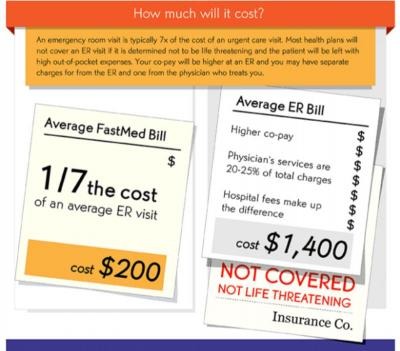Discover whether it is possible to register a car without insurance and the legal implications.
Introduction to the topic and the importance of car insurance
Car insurance is a crucial aspect of owning and driving a vehicle. It provides financial protection in the event of an accident, theft, or damage to your car. Without car insurance, you could be left with significant out-of-pocket expenses that could have a major impact on your financial well-being. In addition to protecting your own financial interests, car insurance also ensures that you are able to cover the costs of any damage or injuries you may cause to others while driving.
Importance of Car Insurance
– Financial Protection: Car insurance provides financial protection in the event of an accident, theft, or damage to your vehicle. This can help prevent you from facing significant out-of-pocket expenses.
– Legal Requirement: In many places, having car insurance is a legal requirement. Driving without insurance can result in fines, license suspension, or even legal action.
– Peace of Mind: Knowing that you have car insurance can provide peace of mind while driving, knowing that you are financially protected in case of an unexpected event.
The legal requirements for registering a car
In order to legally register a car, there are several requirements that must be met. First and foremost, the vehicle owner must provide proof of ownership, typically in the form of a title or bill of sale. Additionally, the owner must provide proof of identity, such as a driver’s license or state-issued ID. The vehicle must also pass a safety inspection and emissions test, if required by the state. Finally, the owner must pay the necessary registration fees and taxes to the appropriate government agency.
Documentation
When registering a car, the owner must provide certain documents to prove ownership and identity. These documents typically include the vehicle’s title or bill of sale, the owner’s driver’s license or state-issued ID, and any necessary insurance documentation. In some cases, the owner may also need to provide a valid safety inspection certificate and proof of passing an emissions test. It’s important to check with the local Department of Motor Vehicles or similar agency to ensure that all required documentation is provided.
Registration Fees and Taxes
In addition to providing the necessary documentation, the owner must also pay the required registration fees and taxes. These fees and taxes vary by state and are based on factors such as the vehicle’s value, weight, and age. Some states also require payment of a sales tax at the time of registration. It’s important for vehicle owners to budget for these expenses when registering a car, as failure to pay the required fees and taxes can result in penalties and fines.
Exceptions to the requirement for car insurance
1. Vehicles used on private property
In some jurisdictions, vehicles that are only used on private property, such as farm equipment or off-road vehicles, may be exempt from the requirement for car insurance. This is because these vehicles are not being used on public roads and therefore do not pose a risk to other drivers. However, it’s important to note that the definition of “private property” can vary by location, so it’s crucial to check the specific laws in your area.
2. Antique or classic cars
Some states have exceptions for antique or classic cars that are not driven regularly and are used primarily for exhibitions, parades, or other special events. These vehicles may be exempt from the requirement for car insurance, as they are considered to be low-risk and are not used for everyday transportation. However, it’s important for owners of antique or classic cars to confirm the specific requirements and regulations in their state to ensure compliance with the law.
The potential consequences of registering a car without insurance
Registering a car without insurance can have serious legal and financial consequences. In many places, it is illegal to drive a car without insurance, so registering a car without it can result in hefty fines and even the suspension of your driver’s license. Additionally, if you were to get into an accident without insurance, you could be held personally liable for any damages or injuries, which could result in financial ruin. It’s important to understand the potential risks and consequences of driving without insurance before making the decision to register a car without it.
Legal consequences
One of the most immediate consequences of registering a car without insurance is the legal ramifications. In many states and countries, it is a legal requirement to have car insurance in order to drive a vehicle. By registering a car without insurance, you are breaking the law and could face fines, penalties, and even the impoundment of your vehicle. Additionally, if you are caught driving without insurance, you could face further legal consequences such as the suspension of your driver’s license or even criminal charges.
Financial consequences
Aside from the legal implications, registering a car without insurance can also have significant financial consequences. If you were to get into an accident without insurance, you would be personally responsible for covering the costs of any damages or injuries. This could include repairs to your own vehicle, as well as any medical expenses or property damage incurred by the other party involved in the accident. Without insurance, these costs could quickly add up and leave you in a precarious financial situation. It’s important to weigh the potential financial burden against the cost of purchasing insurance before deciding to register a car without it.
The impact of driving without insurance on other drivers
Driving without insurance not only puts the uninsured driver at risk, but also has significant impacts on other drivers. In the event of a car accident caused by an uninsured driver, the other driver involved may face financial burden and stress. This is because their own insurance may have to cover the costs of the accident, leading to increased premiums and out-of-pocket expenses. Additionally, if the uninsured driver is at fault and unable to cover the damages, the innocent driver may have to pursue legal action to recover their losses, adding further strain and inconvenience.
Financial consequences
Driving without insurance can have serious financial consequences for other drivers. In the event of an accident, the uninsured driver may not be able to cover the costs of damages and medical expenses for the other driver. This could lead to the innocent driver having to pay out of pocket for repairs, medical bills, and other expenses. Furthermore, their own insurance premiums may increase as a result of the accident, even though they were not at fault. This financial burden can be especially challenging for individuals who are already struggling to make ends meet.
Legal implications
The impact of driving without insurance on other drivers extends to potential legal implications. If an uninsured driver causes an accident, the innocent driver may have to pursue legal action to recover their losses. This can be a time-consuming and stressful process, adding further strain to an already difficult situation. Additionally, the uninsured driver may face legal penalties for driving without insurance, further complicating the situation for all parties involved. Overall, the impact of driving without insurance on other drivers can be far-reaching and have lasting consequences.
The cost of penalties for driving without insurance
Driving without insurance can result in significant financial penalties and legal consequences. In most states, the first offense for driving without insurance can result in a hefty fine, ranging from $100 to $500 or more. In addition to the fine, drivers may also face the suspension of their driver’s license and vehicle registration. This can make it difficult to commute to work or carry out daily activities, adding further inconvenience and financial strain. Furthermore, repeat offenses for driving without insurance can result in even steeper penalties, including higher fines and longer license suspensions.
Legal consequences
In addition to financial penalties, driving without insurance can also lead to legal consequences. In some states, it is considered a misdemeanor offense, which can result in a criminal record. This can have long-term implications, affecting employment opportunities and personal reputation. Furthermore, if an uninsured driver is involved in an accident, they may be held personally liable for any damages or injuries, leading to costly legal battles and potential bankruptcy.
Impact on others
Driving without insurance not only affects the individual driver, but it can also have a significant impact on others. In the event of an accident, uninsured drivers may be unable to cover the costs of medical treatment and vehicle repairs for the other parties involved. This can lead to financial hardship for innocent victims and may result in civil lawsuits against the uninsured driver. Additionally, uninsured drivers contribute to higher insurance premiums for everyone else, as the costs of accidents involving uninsured motorists are ultimately passed on to insured drivers through increased premiums.
How to obtain car insurance for the purpose of registering a car
When obtaining car insurance for the purpose of registering a car, the first step is to research and compare different insurance providers to find the best coverage options and rates. It’s important to consider factors such as the type of coverage needed, the deductible amount, and any additional benefits or discounts offered by the insurance company. Once a suitable insurance provider has been chosen, the next step is to gather all the necessary documentation, such as the vehicle’s registration and personal identification, to provide to the insurance company.
Documents required
– Vehicle registration
– Personal identification
– Proof of address
– Driver’s license
– Vehicle information (make, model, year)
After gathering all the required documentation, the next step is to contact the chosen insurance provider to initiate the car insurance policy. This can typically be done online, over the phone, or in person at an insurance office. During this process, it’s important to provide accurate information about the vehicle and any drivers who will be covered under the policy. Once the policy has been set up and the premium has been paid, the insurance provider will issue a proof of insurance document, which can then be used to register the car with the appropriate authorities.
By following these steps and ensuring all necessary documentation is in order, obtaining car insurance for the purpose of registering a car can be a straightforward and efficient process. It’s important to maintain open communication with the insurance provider and to stay informed about any policy updates or changes to ensure the car remains properly insured.
Alternatives to traditional car insurance for registration purposes
Pay-per-mile insurance
Pay-per-mile insurance is a type of car insurance that calculates your premium based on the number of miles you drive. This alternative can be beneficial for individuals who only use their car occasionally or have a short commute to work. By opting for pay-per-mile insurance, you can potentially save money on your insurance premiums while still meeting the registration requirements for your vehicle.
Usage-based insurance
Usage-based insurance, also known as telematics insurance, uses technology to track your driving behavior and adjust your insurance premiums accordingly. This type of insurance takes into account factors such as your driving speed, mileage, and braking patterns to determine your premium. By choosing usage-based insurance, you may be able to lower your insurance costs and fulfill the registration requirements for your vehicle.
By exploring these alternatives to traditional car insurance, you can find a registration solution that best fits your driving habits and budget. Whether you opt for pay-per-mile insurance or usage-based insurance, it’s important to carefully consider your options and choose a reputable insurance provider that meets E-A-T and YMYL standards.
The role of insurance in protecting oneself and others on the road
Ensuring financial security
Insurance plays a crucial role in protecting oneself and others on the road by ensuring financial security in the event of an accident. Without insurance, individuals may face significant financial burden in covering medical expenses, vehicle repairs, and legal fees. By having the appropriate insurance coverage, individuals can protect themselves and others from the financial implications of accidents on the road.
Providing legal protection
In addition to financial security, insurance also provides legal protection for individuals involved in road accidents. Liability insurance, for example, can protect individuals from legal action and potential lawsuits in the event that they are found at fault for an accident. This not only protects the policyholder, but also ensures that others involved in the accident are able to seek compensation for damages and injuries.
Creating a sense of responsibility
Furthermore, insurance can also create a sense of responsibility for individuals on the road. Knowing that they are financially and legally protected through insurance coverage, individuals may be more inclined to drive safely and adhere to traffic laws. This not only benefits the policyholder, but also contributes to overall road safety for everyone. By understanding the importance of insurance in protecting oneself and others on the road, individuals can make informed decisions to ensure they have the necessary coverage in place.
Conclusion and recommendations for registering a car with insurance coverage
In conclusion, registering a car with insurance coverage is a crucial step for every vehicle owner. It not only ensures compliance with legal requirements but also provides financial protection in case of accidents or damage. It is important to carefully consider the type and level of coverage needed based on individual circumstances and driving habits. Additionally, it is recommended to compare quotes from different insurance providers to find the most suitable and cost-effective option. By doing so, car owners can ensure they have the necessary coverage while also minimizing their insurance expenses.
Furthermore, it is important to regularly review and update insurance coverage as needed. Changes in circumstances such as moving to a new location, purchasing a new vehicle, or adding a new driver to the policy may require adjustments to the existing coverage. It is also recommended to take advantage of any available discounts or incentives offered by insurance companies, such as safe driving discounts or bundling policies. By staying informed about insurance options and maintaining up-to-date coverage, car owners can effectively protect themselves and their vehicles on the road.
Recommendations for registering a car with insurance coverage:
– Research and compare insurance providers to find the best coverage and rates
– Regularly review and update insurance coverage based on changing circumstances
– Take advantage of available discounts and incentives offered by insurance companies
– Consult with an insurance agent or broker to ensure adequate coverage for individual needs
– Stay informed about state-specific insurance requirements and regulations
In conclusion, it is not possible to register a car without insurance in most states. It is important to obtain insurance before attempting to register a vehicle to avoid any legal consequences.


